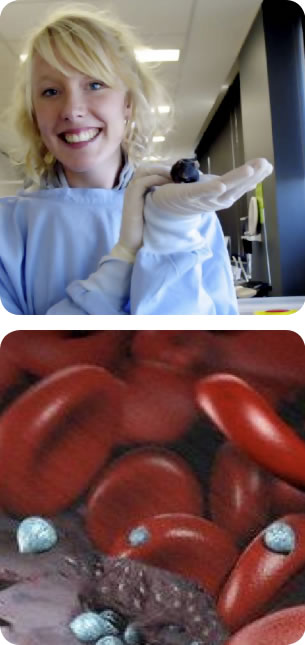
Laura Wieczorski
Menzies Research Institute
How can blood cells help fight malaria?
Hi, my name is Laura and I'm an honours student at the Menzies Research Institute of Tasmania.
I am a big picture person so I love learning about the way the human body works. I have always been interested in medicine and disease but I didn't ever want to be a doctor. I wasn't too sure what I wanted to do whilst I was at school but I had some really fantastic science teachers who encouraged my interest in science. I have always been fascinated by the human body and how it responds to disease and infection, so I chose to study Medical Research at UTAS. This degree offered many subjects that I found interesting, such as Human Biology, Human Genetics, Immunology and Microbiology.
Now that I have finished my degree I am currently completing an Honours year. I am working with a group of scientists that study host response to malaria. Malaria is caused by a parasite that lives inside red blood cells and affects millions of people worldwide. My project is to look at blood cells called platelets. These are tiny cells that circulate around your body in your blood and are important to form clots, which stop you bleeding when you get a cut. Recently, we have found out that they are able to interact with and kill malaria-infected red blood cells. I am working on trying to figure out how this happens!
My future aspirations are to be able to utilize and apply my knowledge of human disease to continue to improve the health of individuals in developing countries. Ultimately I would like to work for organisations such as the World Health Organisation or the United Nations implementing strategies to reduce disease and improve quality of life in developing nations.
Find out more about parasites at: https://parasite.org.au/para-site/introduction/index.html, and learn about the Menzies Research Institute at: www.menzies.utas.edu.au
